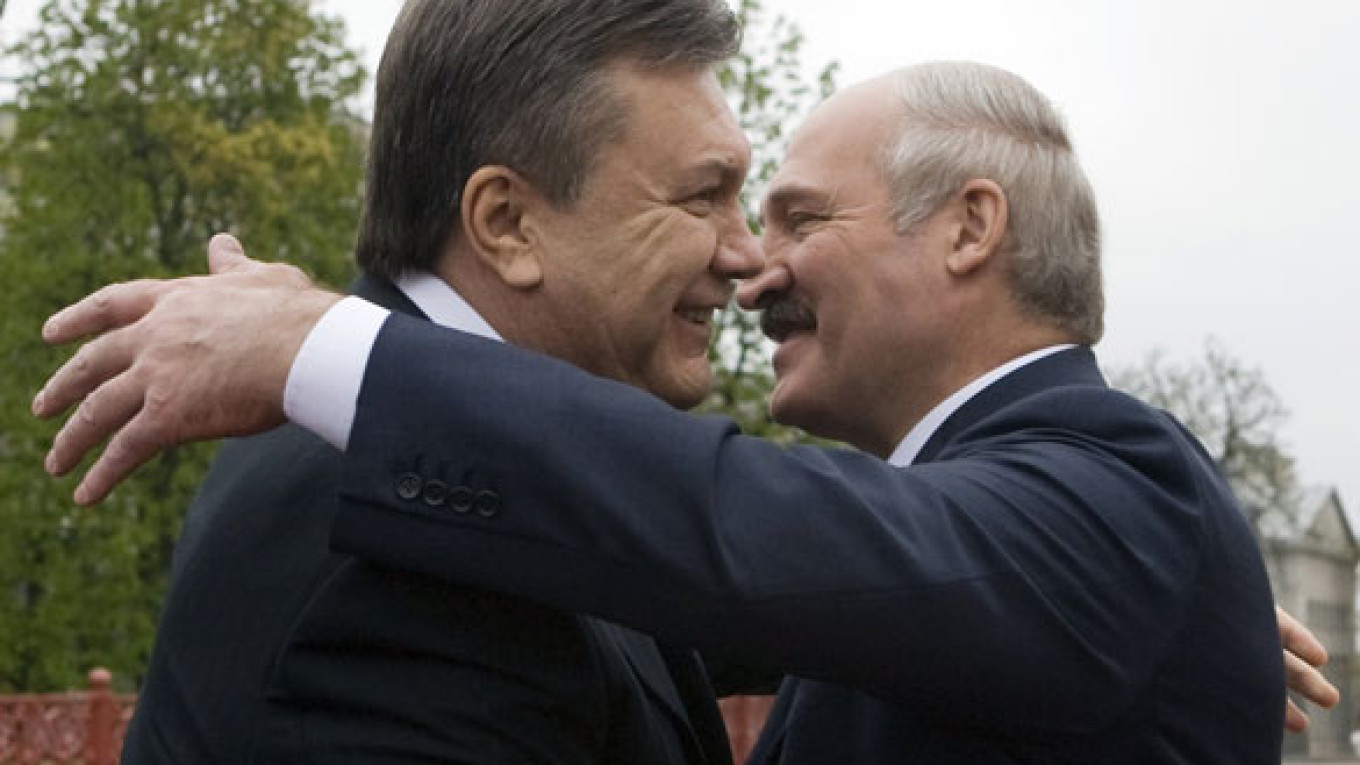Transneft said Tuesday that it was steaming ahead on a pipeline circumventing Belarus, days after Minsk received a shipment of Venezuelan crude, widening the rift in energy trade between the countries.
Transneft chief Nikolai Tokarev, speaking at a meeting with Prime Minister Vladimir Putin, reiterated that the company would complete the Baltic Pipeline System-2 ahead of schedule.
“We are not seeing any big, serious problems at the moment,” Tokarev said about the progress on the pipeline. “Work is moving considerably ahead of schedule.”
Having laid 70 percent of the pipes to date, Transneft plans to start operating the route at the end of next year, earlier than the original deadline of September 2012, Tokarev said.
By emphasizing the pipeline project, which would cause Belarus to lose much of its oil transit flows — and fees — when the pipeline starts operating, Moscow may well have sent a fresh warning to Belarussian President Alexander Lukashenko, who has been trying to pull his country away from its dependence on Moscow.
In the latest development that likely irritated Moscow, the first shipment of crude arrived in Belarus from Venezuela on Sunday, signaling that Belarus was intent on testing this alternative to Russian deliveries. Departing from Venezuela on April 2, the cargo traveled by tanker to Ukraine's Black Sea port of Odessa before heading north to the Mozyr refinery by train.
Vladimir Zubkov, chief of the Belarussian Oil Company, said Monday that the government would determine the profitability of such supplies by the end of next week. Nevertheless, he said deliveries could grow to 10 million tons next year from 4 million tons projected for this year.
Belarus imported 21.5 million tons of crude from Russia last year.
Lukashenko agreed to partner with Venezuela in March after Russia refused to give as steep a discount on its crude sales to Belarus as Lukashenko demanded. He and Ukrainian President Viktor Yanukovych agreed last week to study whether Ukraine could provide its pipelines for carrying the oil, a cheaper option than rail transportation.
Also last week, Belarussian Prime Minister Sergei Sidorsky met his Lithuanian counterpart Andrius Kubilius in an effort to arrange imports through the Baltic port of Klaipeda, a route that would involve railways. After the talks, Kubilius said only that the arrangement was technically feasible and he appreciated the need to diversify supplies.
The deal to buy Venezuelan crude is not commercially viable, serving exclusively as a political gesture meant for a potential tradeoff with Moscow, said Rustam Tankayev, director of the analytical company InfoTEK-Terminal.
"These shipments have no future," he said. "They are just an absurd and childish demonstration of independence."
Russia may potentially divert some of its exports from Ukraine to fill the Baltic Pipeline System-2, in addition to rerouting some of the 80 million tons of crude that now traverse Belarus. Or it may pick Belarus as the sole victim of its new oil transit plans.
A Message from The Moscow Times:
Dear readers,
We are facing unprecedented challenges. Russia's Prosecutor General's Office has designated The Moscow Times as an "undesirable" organization, criminalizing our work and putting our staff at risk of prosecution. This follows our earlier unjust labeling as a "foreign agent."
These actions are direct attempts to silence independent journalism in Russia. The authorities claim our work "discredits the decisions of the Russian leadership." We see things differently: we strive to provide accurate, unbiased reporting on Russia.
We, the journalists of The Moscow Times, refuse to be silenced. But to continue our work, we need your help.
Your support, no matter how small, makes a world of difference. If you can, please support us monthly starting from just $2. It's quick to set up, and every contribution makes a significant impact.
By supporting The Moscow Times, you're defending open, independent journalism in the face of repression. Thank you for standing with us.
Remind me later.


